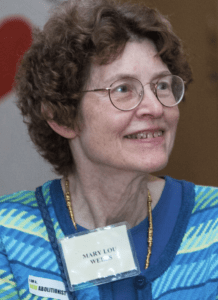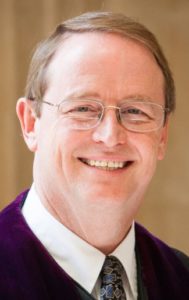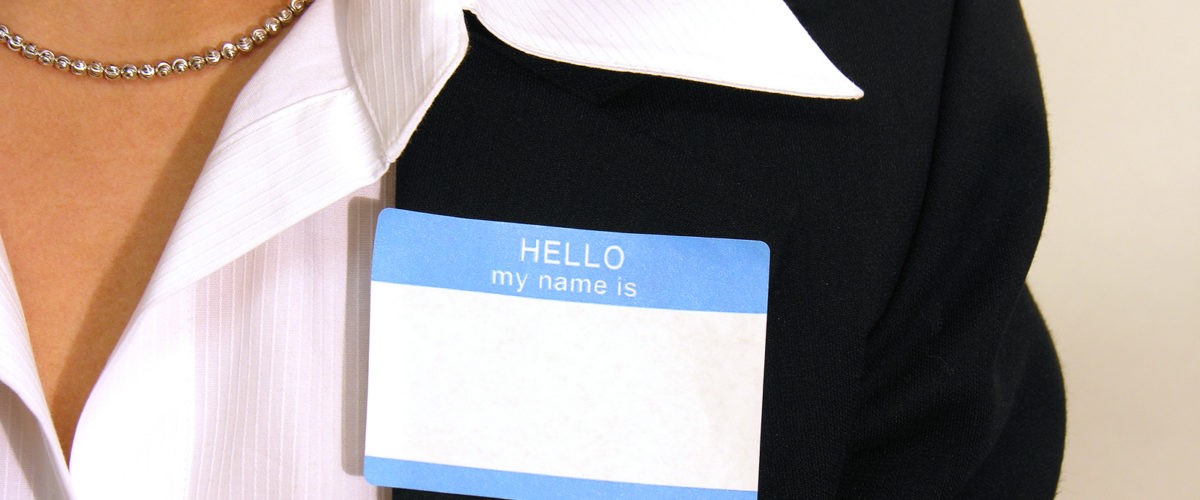Frederick Buechner famously defined vocation when he wrote, “The place God calls you to is the place where your deep gladness and the world’s deep hunger meet.” He explained, “The kind of work God usually calls you to is the kind of work (a) that you most need to do and (b) that the world most needs to have done.”
Ministers love this quote because it sounds smart. We need to find important work that we enjoy. We should look for jobs that are fulfilling. This advice is so pragmatic that I have offered it dozens of times, but I am glad I never said it to Mary Lou Wells.
On our first Good Friday in Brooklyn, Mary Lou invited Carol and me to lunch on Easter: “We’ll have about a dozen people. Would you like to come?”

Mary Lou Wells
My first thought was that if you are invited on Good Friday to lunch on Easter, someone more important than you has canceled, but we did not have any other invitations, so we were glad to be invited. On Sunday, when we learned who was going to Mary Lou and John’s, we understood why we were not invited until Friday. They were gathering people who had not been invited anywhere else — those whose families were far way or who had no family.
If Frederick Buechner followed his own advice, he would only invite people he likes to lunch. Mary Lou invited anyone who needed somewhere to go. Mary Lou didn’t ask, “Is this something I will enjoy?” She went straight to, “What needs to be done?”
She taught our congregation to extend hospitality to those who need it. When I ask, “How did you get to Plymouth Church?” lots of people begin their answer with Mary Lou. Everyone who wandered through our front door was greeted with the same genuine welcome.
She ran coffee hour and made sure there were enough Oreos to keep the children from taking all the fudge she made, because people need fudge. She was meticulous in keeping the nametags up-to-date, because names matter. Mary Lou was in charge of the Men’s Shelter, where she cared for homeless people — both by making sure the details were covered and by listening to each person.
For years, when questions came up, I would say, “We need to call 1-800-Marylou.” Mary Lou was our institutional memory. She knew our policies and procedures, because she wrote the policies and procedures. She kept track of the work of the church, because the work of the church is important.
At the Christmas Eve service, we slowly dim the lights as we sing Silent Night. We do this with a breaker box that was old in 1975 when Mary Lou and John joined Plymouth Church. Mary Lou created a diagrammatic layout more complicated than the New York subway map to explain the order in which the lights should be turned off, because worship is a big deal.
Mary Lou was the church librarian, because books are important. She polished the church silver, because church happens around tables. She helped Plymouth members recognize that they had extra money that Plymouth could use. She helped volunteers who did not know they were volunteers learn that they were indeed volunteers.
“Mary Lou did not do the work of the church because it made it her feel good, but because the work needed to be done.”
Mary Lou did not do the work of the church because it made her feel good, but because the work needed to be done. The best way to list the Plymouth Church ministries with which Mary Lou served is to start with a list of all of the Plymouth Church ministries. We will never know how many it will take to cover everything Mary Lou did, because we will not cover everything Mary Lou did.
The generation older than mine included church people who did not ask, “Will this be fun?” Their question was, “What do we need to do?” We understand why people look for fulfilment rather than responsibility. We would rather do what we enjoy than what does not play to our strengths, but we have to admire those who embrace the way of sacrifice.
Some who live with the greatest sense of purpose do not spend much time looking for purpose. They see what needs to be done and do it without a lot of introspection. They find their deep gladness without aiming for it.
On July 4, Simon Peter was at the pearly gates, handing out name tags, making people feel welcome. He looked up and said, “Mary Lou, I’ve been waiting for someone to take a shift. It’s not always fun, but it needs to be done.”
Mary Lou said, “I’ll do it.”
At her memorial service on Saturday, we gave thanks to God for Mary Lou’s commitment to Christ’s church. If your church has a Mary Lou Wells, you should thank her while you have the chance.

Brett Younger
Brett Younger serves as senior minister at Plymouth Church in Brooklyn, N.Y.


